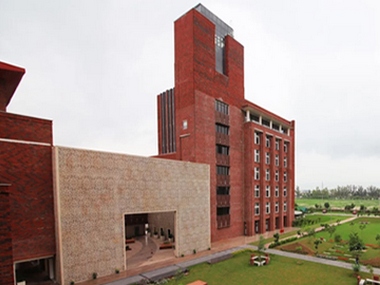A year after a 24-year-old student,
Raya Sarkar kicked up a storm by publishing a
crowd-sourced list of alleged sexual predators from the world of academia, it appears that justice still eludes the survivors. Or at least, that is the case with a sexual harassment survivor of Ashoka University, who had accused
Mitul Baruah, a faculty member of the institution. In an open letter published at
www.youtooashoka.in, a platform run by some concerned students and alumni of Ashoka University, the group highlighted the gross violations of the varsity’s own policies, in dealing with the case in which Baruah is accused. The letter, published after taking consent of the survivor, alleges that the university overlooked several procedural guidelines laid down in setting up of committees and handling the matters. [caption id=“attachment_4682171” align=“alignleft” width=“380”] Representational image. Image Courtesy: aas-in-asia2018.com[/caption] It recalled some of the criticism of Sarkar’s list which suggested the survivors stick to the official procedure instead of public shaming, to point out how doing just that didn’t have the desired outcome. The letter detailed how the survivor relentlessly pursued the matter for over 280 days and was still left wanting for justice as the internal enquiry committee adjudged that Baruah should only be charged with ‘misconduct’ and not guilty of sexual harassment. Moreover, it fell short of naming any punitive action against the accused, only stating that legal opinion should be sought. “This letter demonstrates that the due process here has done next to nothing to help the survivor. In fact, many of the CASH procedures were not followed as claimed,” it read. Detailing out the violations in the procedure, the letter laid out several fronts on which the varsity administration lapsed. Firstly, the letter claims that even in setting up a Committee Against Sexual Harassment (CASH committee) the varsity overlooked several provisions in its CASH policy. According to section 13 of the Ashoka University’s CASH policy, a five-member screening committee must be set up, with members from the CASH. In this case, it is not clear whether the screening committee was set up. There was an ad-hoc committee which, without asking for evidence from the survivor, observed that the case does not fall under the ambit of sexual harassment at the workplace. Secondly, it alleges the ad-hoc committee submitted a report purely based on the deposition of both parties, after which there was no formal inquiry committee instituted by the CASH. The letter further claims that instead of forming such a panel, an unsigned final CASH report was sent to the survivor. Moreover, the letter states, “Ashoka University’s CASH report expressed that Section 19 of the (Sexual Harassment of Women at the Workplace) Act places an obligation upon the employer to treat sexual harassment as misconduct. It states that such misconduct is not restricted to sexual harassment at only the workplace, but also includes sexual harassment in general.” But later, according to it, the disciplinary committee formed subsequently said that the actions of the defendant would not fall under the ambit of sexual harassment at the workplace, ignoring the CASH report of another university, where the complaint was originally raised. Thirdly, the letter said that the disciplinary committee, for unexplained reasons delayed the handing over of its report to the survivor, forcing her to come and physically collect the report from the varsity campus. In doing so, they forced upon her an interaction with the perpetrator, even though Ashoka CASH policy explicitly states that at no point should the defendant and the complainant be put in a situation where they might face each other. Fourthly, the process of enquiry and concluding action, which should have been carried out in a prompt manner was unnecessarily delayed, leaving the survivor distressed and battling undue pressure. “This process has spread over 280 days which we feel shows a lack of empathy for what the survivor went through during the time. During this time, she received threats over the phone which pushed her to file an FIR. The defendant was listed as the only prime suspect based on the FIR,” the letter stated. In the end, the letter put out six-point demands, seeking to improve the institutional process than undermine it. “The university has failed to acknowledge how power (not just patriarchal but also positional) has been at play throughout the course of the relationship between the survivor and the defendant. Ashoka University seems to have urged the survivor a fair number of times to ‘please bear with us; the wait is frustrating for us as well’ not realising that it is actually the other in the equation with a lot of power, leaving the survivor with no choice besides waiting and persistently e-mailing,” the letter said.
In an open letter published at www.youtooashoka.in, a platform run by some concerned students and alumni of Ashoka University, the group highlighted the gross violations of the varsity’s own policies, in dealing with Baruah’s case.
Advertisement
End of Article


)

)
)
)
)
)
)
)
)



